7th Annual Gulf Coast Multidisciplinary Pharmacotherapy Conference
featuring Dr. George Udeani, Dr. Thomas Alexander, and Dr. Donna Huddleston
By Edmond Ortiz
The seventh annual Gulf Coast Multidisciplinary Pharmacotherapy Conference will be held June 1-3 at Del Mar College-West Campus in Corpus Christi. The conference is presented by the Coastal Bend Society of Health-System Pharmacists (CBSHP), Del Mar, and UT Health-San Antonio (formerly University of Texas Health Science Center San Antonio).
Many pharmacists, nursing and medical professionals along the Gulf Coast and around the Rio Grande Valley are expected to attend the symposium. The conference offers educational opportunities to pharmacists, pharmacy technicians, physicians, physician assistants, nurses, and advanced practice nurse practitioners, as well as for fellows, residents, students and other healthcare professionals.
There will be a variety of professionals providing lectures, each of which will consist of a PowerPoint presentation, and a brief question-and-answer session. Every participant will be required to take pre-tests and post-tests given through an audience response system.
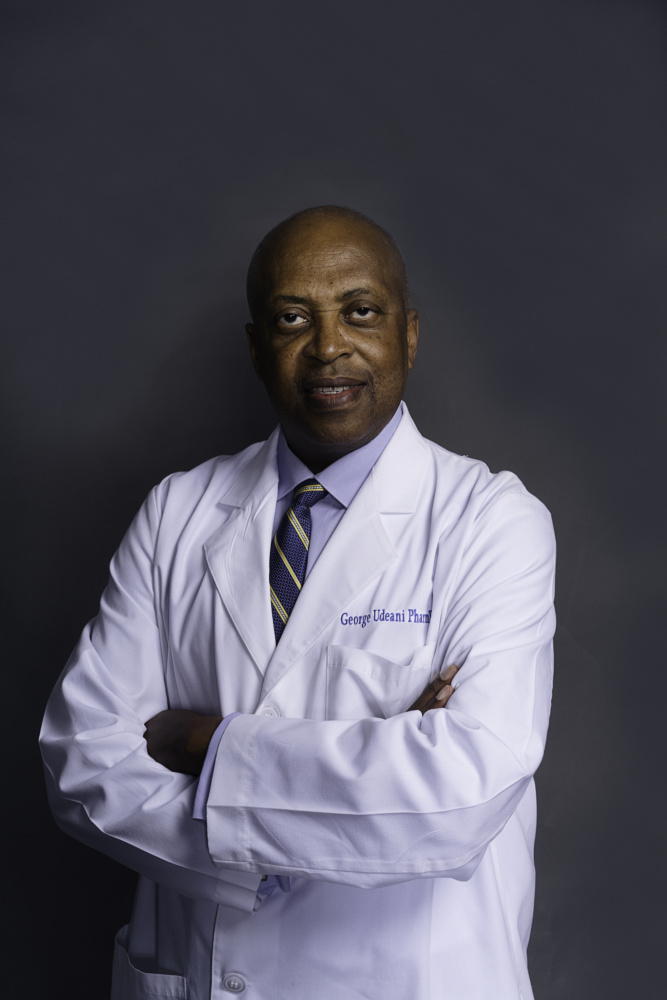
Dr. George Udeani
Dr. George Udeani, president of CBSHP, is the conference chairperson. He is the clinical pharmacy manager, residency program director at Corpus Christi Medical Center, and visiting professor, Texas A&M Health Science Center.
Some of the other scheduled presenting faculty and planning committee members include Dr. Thomas Alexander, cardiac catheterization laboratory and cardiology fellowship program director at Corpus Christi Medical Center; and Dr. Donna Huddleston, associate professor and Nursing Success Center faculty coordinator at Del Mar College.
Alexander is board-certified in interventional cardiology and cardiovascular medicine. He received medical school training and his bachelor’s degree in India in the 1980s before moving to the United States, where he was an internal medicine resident through the Southwestern Medical Center in Dallas. He completed a fellowship in interventional cardiology at Temple University.
Huddleston received a bachelor’s degree in nursing at Purdue University, and master’s and a doctorate in nursing both from the University of Illinois-Chicago. At Del Mar, she has taught courses on health assessment, pharmacology, foundations, and caregiver skills.
According to symposium organizers, recent advances in health care, technology and increasing social demands are affecting disease management and healthcare delivery systems.
The end of the conference will provide participants with up-to-date data on overriding topics, such as pharmacotherapy, new state pharmacy laws, and the opioid crisis. Speakers will touch upon subtopics such as infectious diseases, psychiatry, sleep apnea, pain management, anticoagulation therapy, cardiovascular therapeutics, and oncology. Additional subjects will include immunology/immunotherapy, neuromuscular blockade/reversal agents, Ebola virus outbreaks, and snake bites. Furthermore, attendees will be encouraged to work in interdisciplinary teams to make certain that each of their patients is managed based on best practices and current guidelines.
Some other program objectives at the June conference are:
- Discuss existing guidelines for management of pneumonia
- Describing the prevalence and management of Zika virus in the community
- Outlining the extent of antibiotic resistance and alternatives in managing multidrug-resistant microorganisms
- Describing approaches to treating and preventing Clostridium difficile, the bacterium that causes diarrhea and more significant intestinal conditions such as colitis
- Comprehending new treatment options for schizophrenia in daily practice
- Understanding the use of PCSK-9 inhibitors in managing hyperlipidemia
- Providing a framework for a practice model that ensures provision of safe, effective, efficient, accountable and evidence-based care for all patients
- Determining successful implementation of new pharmacy practice models and identifying opportunities and challenges in a changing environment
Dr. Udeani, in his position, oversees the clinical use of drugs introduced into his hospital. The work of Dr. Udeani and his colleagues focuses on optimizing drug therapy to achieve positive patient outcomes, while minimizing adverse events. This is achieved via application of concepts in therapeutic drug monitoring and clinical decision support systems.
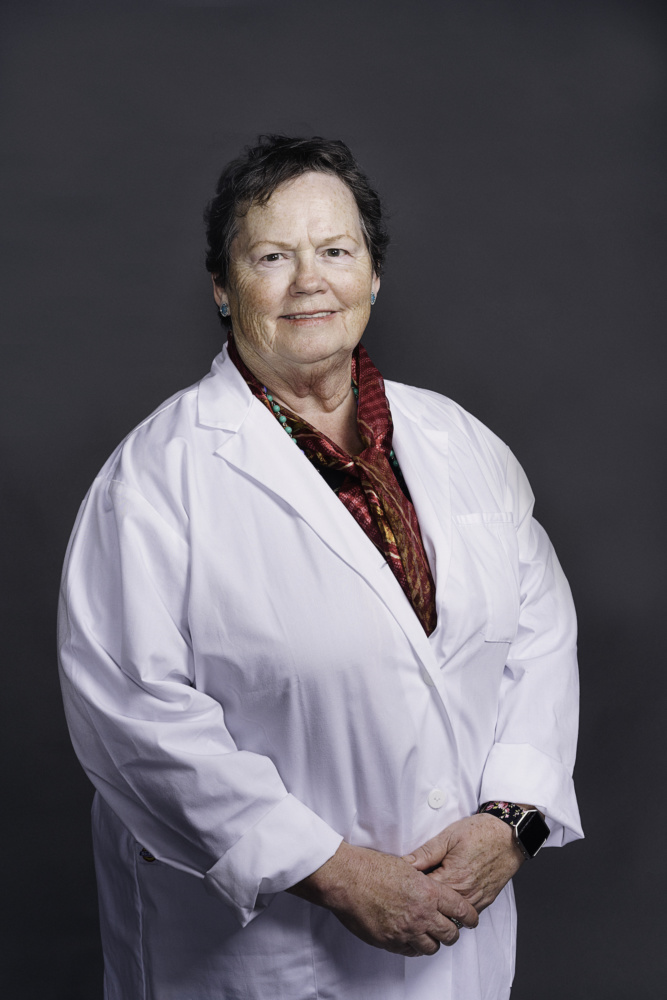
Dr. Donna Huddleston
He said conferences such as the one taking place in June can help healthcare professionals brush up on cutting-edge concepts in pharmacotherapy as well as Up To Date guidelines in medicine.
“I have to do a literature reviews to determine whether a drug has advantages or is better than the drugs we already have,” Dr. Udeani said. “Our industry has moved to becoming more clinical. You account for all of the drugs a patient consumes. You know what a given drug is supposed to do for a given patient, thus it is essential to work hard at modulating positive outcomes pharmacologically.”
There is, indeed, much for a pharmacist to consider when managing the flow of drugs to patients. “We work in an interdisciplinary manner with departments to monitor parameters for drug efficacy, and toxicity,” Dr. Udeani explained.
A pharmacist registered in Texas and Illinois, Dr. Udeani attended a British boarding high school in Cameroon, West Africa, which ran the University of London Syllabus towards the General Certificate of Education (GCE). During that period, he developed an extreme interest in chemistry.
“I figured pursuing pharmacy was the next logical step,” Dr. Udeani recalled. He moved to the United States in 1980. He enrolled at the University of Minnesota, where he earned bachelor and doctoral degrees in pharmacy. He completed a 6-year post-doctoral training in cancer research – drug discovery and development with the National Cancer Institute – National Institutes of Health, Bethesda, MD, and Program for Collaborative Research in the Pharmaceutical Sciences, the University of Illinois at Chicago. During this period, his research team discovered and developed four anti-cancer drugs. Dr. Udeani also taught at the University of Illinois at Chicago and practiced clinical pharmacy in the area of hematology-oncology at the University of Illinois Hospitals and Clinics. He went on to obtain a higher doctorate in cancer research from the Warnborough College in Ireland.
Dr. Udeani stated that he admired some of the MD-PhD’s that taught and others that he worked with and their ability to draw into their work expertise from both their basic and clinical sciences background. This influenced him to pursue a second doctorate hoping that he could someday apply that in pharmacy, as several others in medicine have done. In 2010 came such an opportunity, when he was recruited to come work in South Texas, where he has been able to apply both his basic and clinical science degrees in practice, academia and research.
Dr. Udeani said he enjoys being part of an organization such as CBSHP, which ensures he and his colleagues and counterparts stay atop issues affecting pharmacists.
During his tenure, Dr. Udeani has seen CBSHP membership expand up to 146 for an organization which had no membership in 2010. There are 11 Texas chapters of the Society of Health-System Pharmacists, with over 1800 members. CBSHP members meet each month.
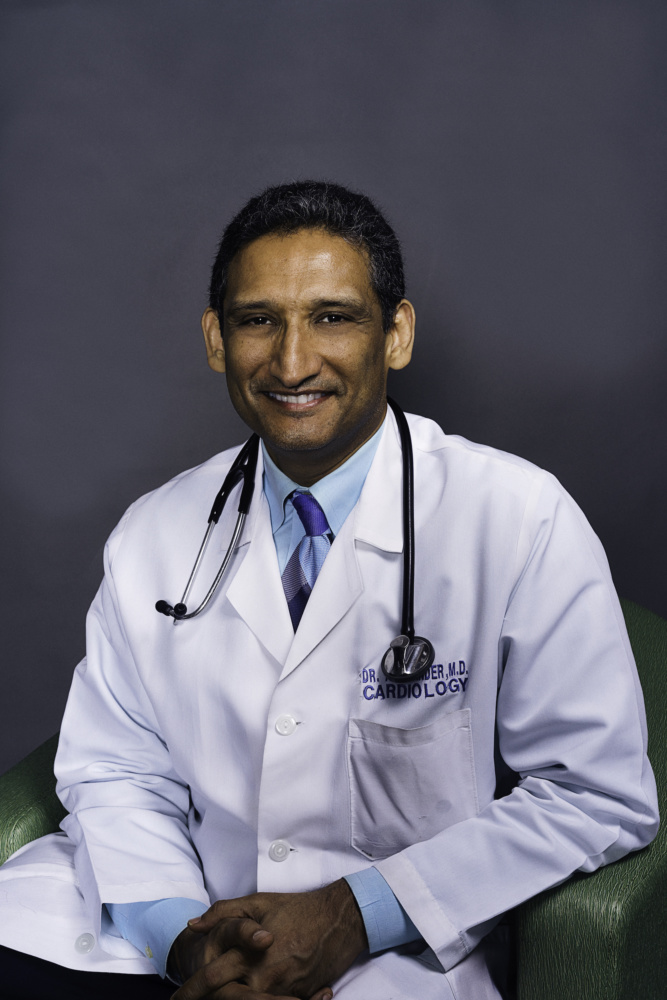
Dr. Thomas Alexander
The organization has enhanced the number of educational opportunities for pharmacists, physicians, nurses, and pharmacy technicians in the Coastal Bend region. Dr. Udeani was one of the co-founders for the Gulf Coast Multidisciplinary Pharmacotherapy Conference.
“It’s sort of being an advocate for our profession,” Dr. Udeani said. “There are issues that also deal with pharmacy technicians. There’s a movement to ensure that technicians earn a bachelor’s degree, and help them to form their own advocacy society.”
Overall, for now, there are no formal training requirements for becoming a pharmacy technician other than graduating with a high school diploma. Many technician positions offer training on the job, while other employees want prospective technicians to graduate from a one- to two-year pharmacy technology program.
But requiring aspiring pharmacy technicians to earn at least a bachelor’s degree would allow them the chance to train to work in not only pharmacy operations but also in clinical areas, such as medication reconciliation. This, Dr. Udeani said, would improve communications among the healthcare providers collaborating to care for a patient, as well as patient outcomes.
Dr. Udeani will speak at the symposium about managing Ebola virus. A 2014 outbreak of the illness in West Africa sparked fears that it would spread in the United States after four people stateside were reported with symptoms. “It’s one of the great global ailments we have to pay attention to,” Dr. Udeani said.
Costs to register for the symposium vary depending on one’s professional or student status, and there are options to attend one or two days. Pre-registration is due May 22.
The conference will also include a June 3 golf tournament, whose proceeds will benefit CBSHP. Proceeds from a June 2 dinner will benefit people directly affected by Hurricane Harvey.
Visit for details or www.facebook.com/CBHSP/
(Photos Taken By William Selman)
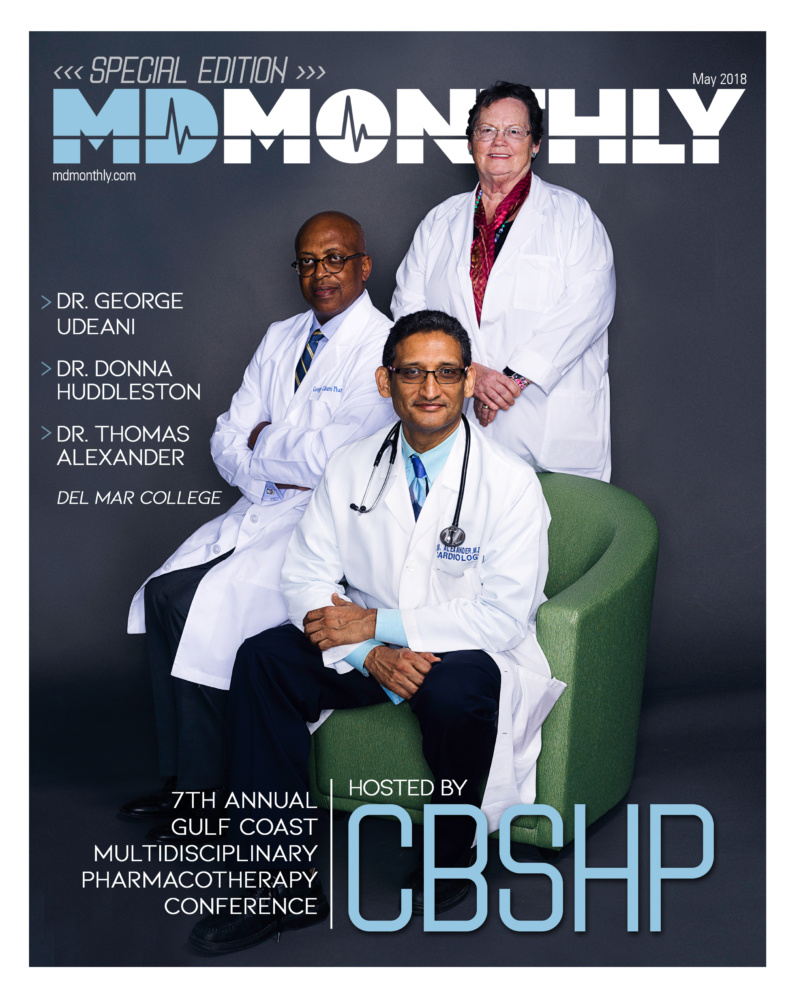
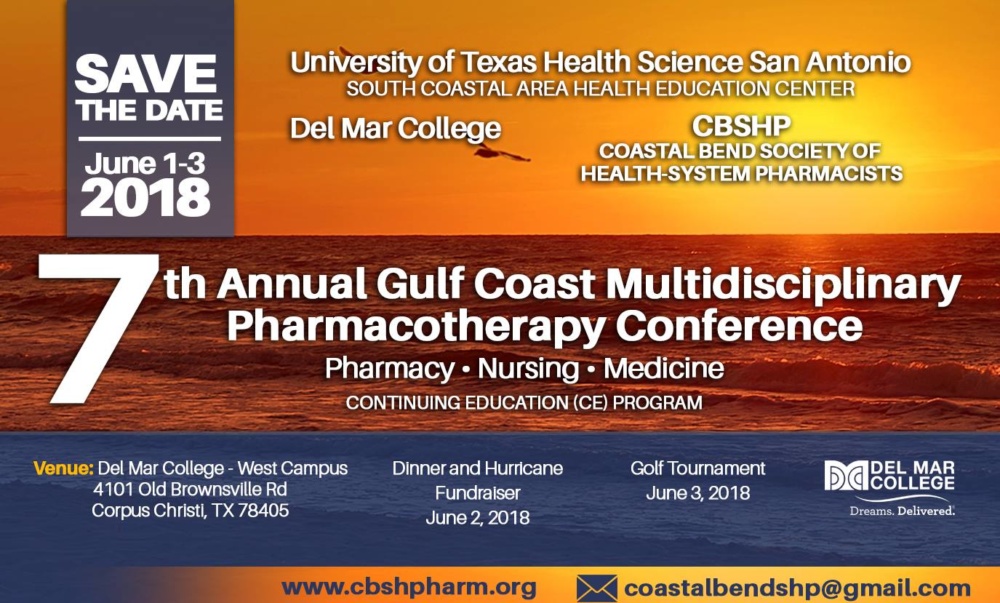




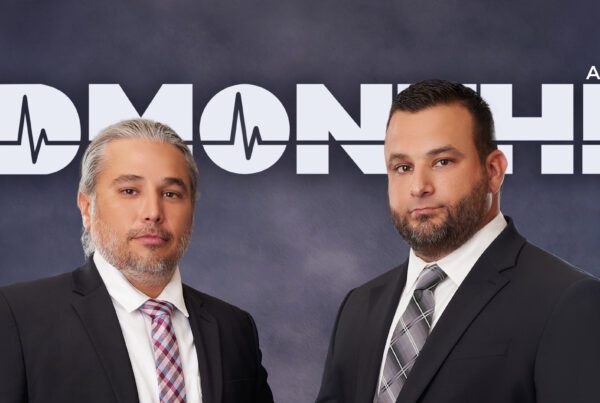
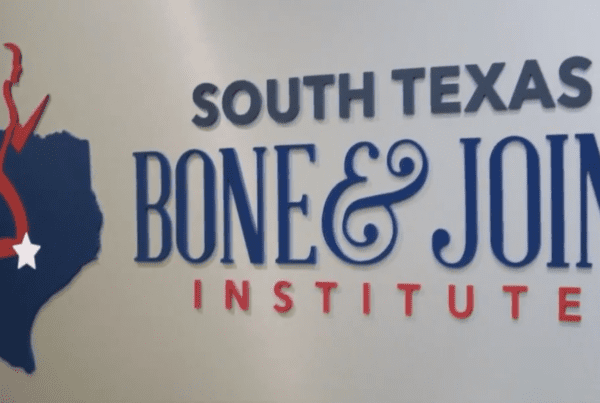
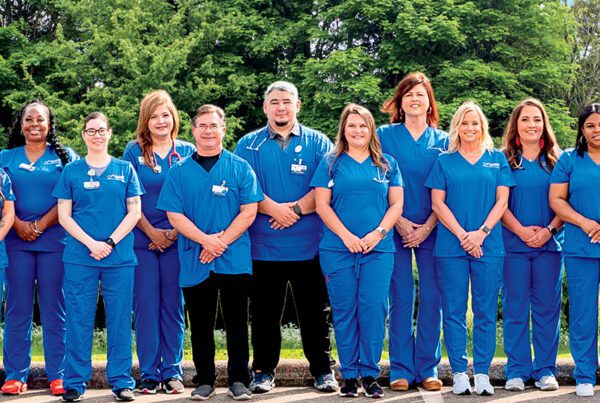
Recent Comments